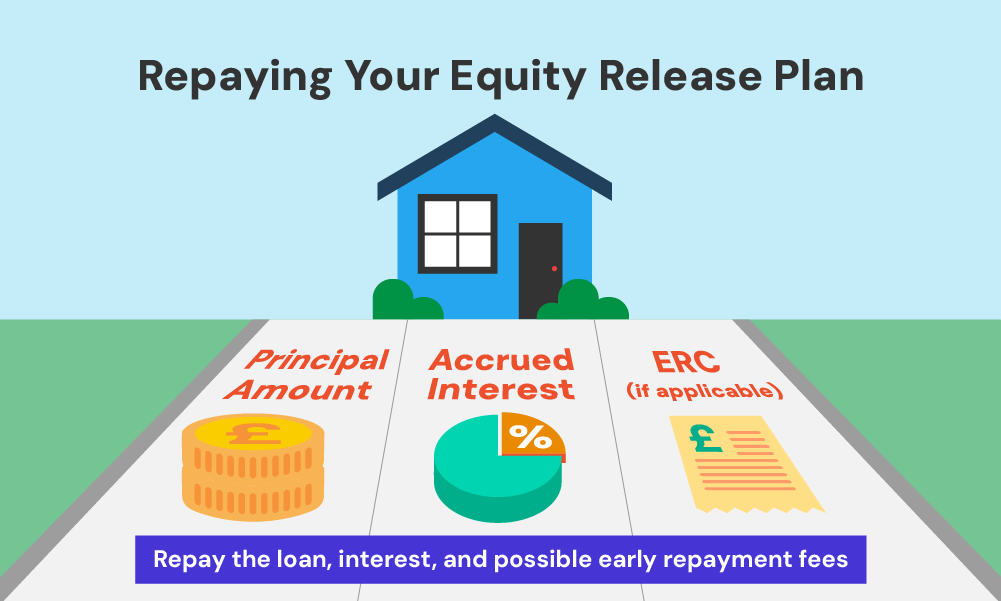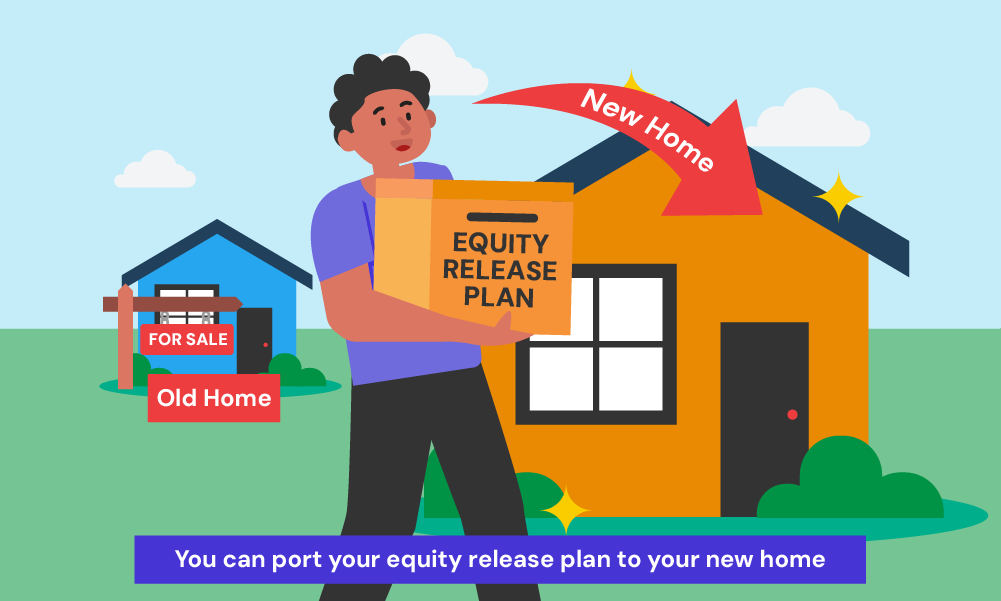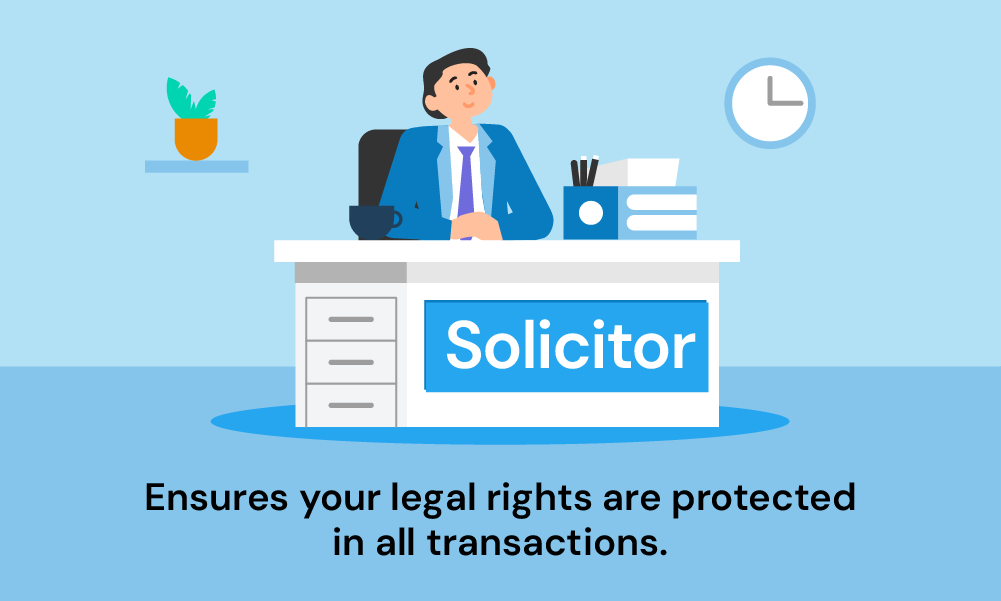- What Is Equity Release and How Does It Work?
- Can I Sell My Home After Taking Out Equity Release?
- Repaying Your Equity Release Plan
- Can I Transfer My Existing Equity Release Plan?
- Benefits of Selling With Equity Release
- Potential Downsides of Selling With Equity Release
- Should I Repay or Transfer My Plan?
- How Do I Sell a House With Equity Release?
- The Bottom Line: Other Considerations Before Selling
Can I Sell My House If I Have An Equity Release?

Selling your home with an existing equity release plan requires careful planning.
Many homeowners considering a move – be it closer to family, downsizing, or a lifestyle change – often wonder if equity release complicates the sale.
The good news is you can absolutely sell! 🎉
However, for a smooth process aligned with your financial goals, careful consideration is KEY.
In this article, we’ll explain exactly what’s involved in selling a property with equity release in place.
We’ll cover the key considerations, potential costs, and the all-important question–should you transfer or repay your equity release? 🧐
What Is Equity Release and How Does It Work?
But first, a quick recap on equity release for those unfamiliar with how it works. 🤓
Equity release lets you access its value in cash while you keep living there.
There are two main types:
- Lifetime Mortgages – You take out a loan secured against your home’s value. The loan amount, plus rolled-up interest, is repaid when you die or move into long-term care.
- Home Reversion Plans – You sell part or all of your home in exchange for a lump sum or regular income. The provider then owns a share of the property.
Both are means of getting cash from your home for retirement income, home improvements, or that dream holiday. Just remember, it can impact how much you can leave to loved ones.
Can I Sell My Home After Taking Out Equity Release?
You can still sell your house even with an equity release plan, but there are some things to consider.
First, the sale proceeds will be used to settle the entire equity release loan, including any interest and fees that have built up over time.
Let’s look at an example. Imagine you took out a £50,000 lifetime mortgage on your £250,000 house ten years ago. With interest, your total debt has grown to £75,000.
If you sell your house today for £300,000, you’ll use £75,000 to pay off the equity release loan. That leaves you with £225,000 as your profit from the sale.
Things are slightly different with a home reversion plan.
A portion of the sale proceeds will go to the provider, based on your original agreement.
In most cases, selling your house means repaying the equity release loan in FULL.
However, some plans allow you to “port” the equity release to a new property. This lets you keep the plan’s benefits even after you move.
No matter what type of equity release you have, selling your house will always leave you with less money than if you didn’t have the loan.

Reasons For Selling With Equity Release
There are various legitimate reasons you may want to sell your home with an equity release plan:
- Downsizing to a smaller, easier-to-maintain property
- Moving closer to the family for support in later life
- Relocating to a different area, e.g. the countryside
- Releasing more funds for your retirement by moving to a cheaper area
Whatever the motivation, the ability to sell is an important factor. You don’t want to be trapped in your home if circumstances change.
Repaying Your Equity Release Plan
The most common route – is simply to repay your existing equity release plan. 😉
Selling your home allows you to repay your equity release plan in full using the sale proceeds.
The total repayment includes:
- The original loan amount.
- Accrued interest.
- Potential early repayment charges, which could amount to thousands of pounds depending on your plan.
Any outstanding mortgage on the property must also be settled before clearing the equity release debt.
Once everything is repaid, you’ll be FREE to buy your new home without the burden of an existing equity release loan.
You can then consider a new plan on the new property if it suits your needs.

Can I Transfer My Existing Equity Release Plan?
You can transfer your existing equity release plan, also known as “porting,” to your new property when selling your current home. This lets you keep your existing loan terms but secured on your new house.
The advantages of transferring are:
- Avoid early repayment charges on your current loan.
- Keep the same interest rate.
- Potentially access more equity if your new home has a higher value.
However, your new property must meet the lender’s criteria, including location, type, condition, and value. They will also assess your affordability.
Even if approved, you might need to repay some of the existing loans if downsizing to a less expensive home
Conversely, you could access more equity if buying a more expensive property.
Porting is possible, but not guaranteed. The lender ultimately decides if the new property is suitable security for your equity release debt.

Benefits of Selling With Equity Release
Here’s how selling your house with an equity release can benefit you:
- Access tax-free cash. Selling your house with equity release allows you to access a portion of the property’s value as tax-free cash.
- Downsize and free up cash. The sale proceeds can be used to downsize to a more manageable property, freeing up additional cash for retirement or other needs.
- Move to your ideal location. Selling allows you to relocate to a preferred area, closer to family, or a more suitable climate.
- Reduce inheritance tax. By using some of the equity release cash, you can potentially lower the value of your estate and reduce inheritance tax for your beneficiaries.
- Settle Debts. You can use the funds from the sale to fully repay the equity release, settling any accumulated debt.
- Portability Option. Some equity release plans allow you to transfer the plan to a new property, maintaining the benefits while moving to a home that better fits your current needs.
Potential Downsides of Selling With Equity Release
There are a few potential drawbacks and costs to bear in mind when selling your home with an equity release plan in place:
- Early Repayment Charges. As mentioned, closing your loan early might trigger penalties. However, these fees are usually reduced over time.
- Interest Rollup. If your equity release plan has been in place for many years, the compounded interest may have grown considerably, reducing your sale profits.
- Potential Negative Equity. In a worst-case scenario, the loan amount plus interest could exceed your home’s selling price. But equity release plans typically come with a “no negative equity” guarantee, so you won’t owe more than the sale price.
- Reduced inheritance. Repaying the loan reduces the amount you can leave behind for inheritances or care costs.
- Property Value Changes. If your home’s value has dropped, there might not be enough money from the sale to cover the equity release debt.
- Selling Costs. As with any property sale, there will be legal fees, estate agent commission, removals costs etc. to cover.
Should I Repay or Transfer My Plan?
This is the critical question when selling your home with an equity release plan. Which is the better option – repaying or transferring? 🤔
Repaying is better if:
- You’re downsizing to a much lower value property
- Interest and charges have caused the loan to grow very large
- You want to completely clear the debt rather than port it
- Property prices have dropped, reducing your home’s sale value
Transferring your equity release is generally preferable if:
- Your new property meets all the lender’s requirements
- You want to retain your current loan terms and interest rate
- The new home value supports releasing more cash if needed
- You can afford to clear some of the debt if downsizing
Your circumstances, new property details and the scale of the outstanding equity release debt will determine the most suitable route.
How Do I Sell a House With Equity Release?
So what’s actually involved in selling your home if you have equity release? Here are the key steps:
1. Contact Your Provider
Let them know your plans to sell, whether you’ll repay or transfer the loan.
They’ll provide a redemption statement showing the amount you need to repay in full. This is important for negotiating sale prices that will clear the debt.
2. Find a Solicitor
You’ll need a solicitor to handle the legal aspects of selling your home and redeeming the equity release plan. They will liaise with the provider.
It’s advisable to use a solicitor experienced in equity release to ensure the process runs smoothly.

3. Instruct an Estate Agent
Next, you can put your home on the market using a reputable estate agent. They will market the property and assist in finding a buyer.
You will need to be upfront about the equity release plan in place to attract buyers who understand the situation.
4. Repaying The Loan
Once a sale is agreed, your solicitor will calculate the final sum owed, including any redemption fees.
If transferring the equity release plan, the solicitor ensures the new property is acceptable security before proceeding. You may need to pay off some of the loan.
If repaid completely, the sale proceeds first go towards clearing the plan debt and any outstanding mortgage. The remaining proceeds after all costs are yours to put towards your new home.
Speaking to an independent equity release adviser can help weigh up the pros and cons of your situation.
The Bottom Line: Other Considerations Before Selling
Selling a home with an equity release plan requires careful planning. It’s a long-term commitment, so understanding the costs is key.
This includes early repayment penalties and transfer approval fees charged by your provider.
Consulting with qualified mortgage brokers specialising in equity release is essential before you proceed. Their expertise will help you navigate the complexities of selling your home with an existing plan.
They can help you:
- Understand the impact of selling on your equity release plan
- Determine if transferring the plan to a new property is possible
- Explore all your options and calculate potential costs
- Find the most competitive repayment solutions
Ultimately, selling with an equity release plan is achievable, but taking the right steps is essential.
With professional guidance from experienced mortgage brokers, you can successfully sell your home, unlock its cash, and move on to your next chapter.
Looking for the right broker? Reach out to us. We can help you get connected with qualified brokers specialising in equity release.
Get Matched With Your Dream Mortgage Advisor...

Frequently asked questions
Can I move a house if you have an equity release?
Yes, you can move house if you have an equity release. Most equity release plans, particularly those under the Equity Release Council, include a “portability” feature.
This means you can transfer your equity release plan to a new property, subject to the new property meeting the lender’s criteria.
However, the new property must be of equivalent or higher value than the current one. If the new property is worth less, you might need to repay a portion of the equity release loan.
Always check with your provider for specific terms and conditions related to moving house with an equity release plan.




